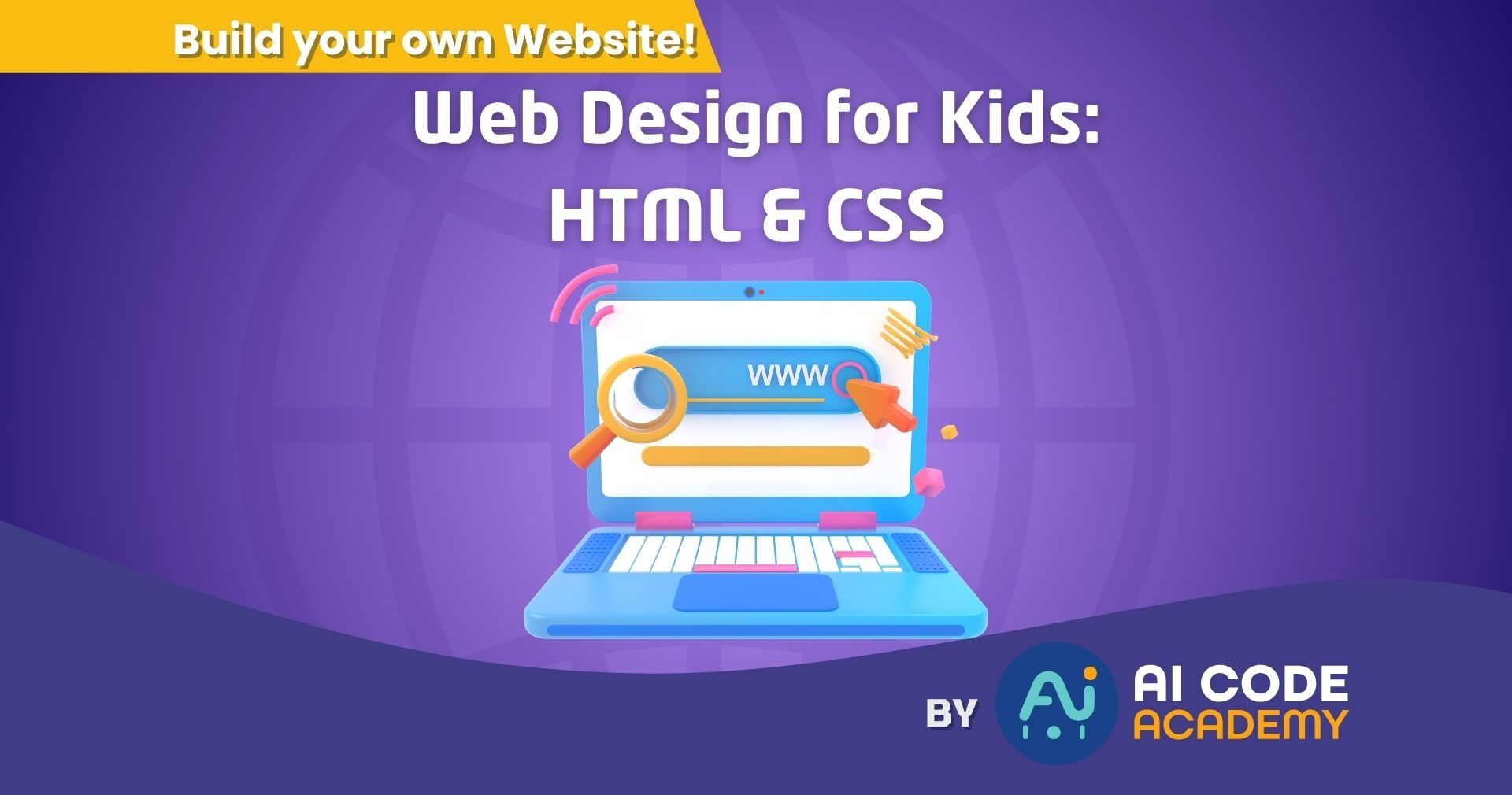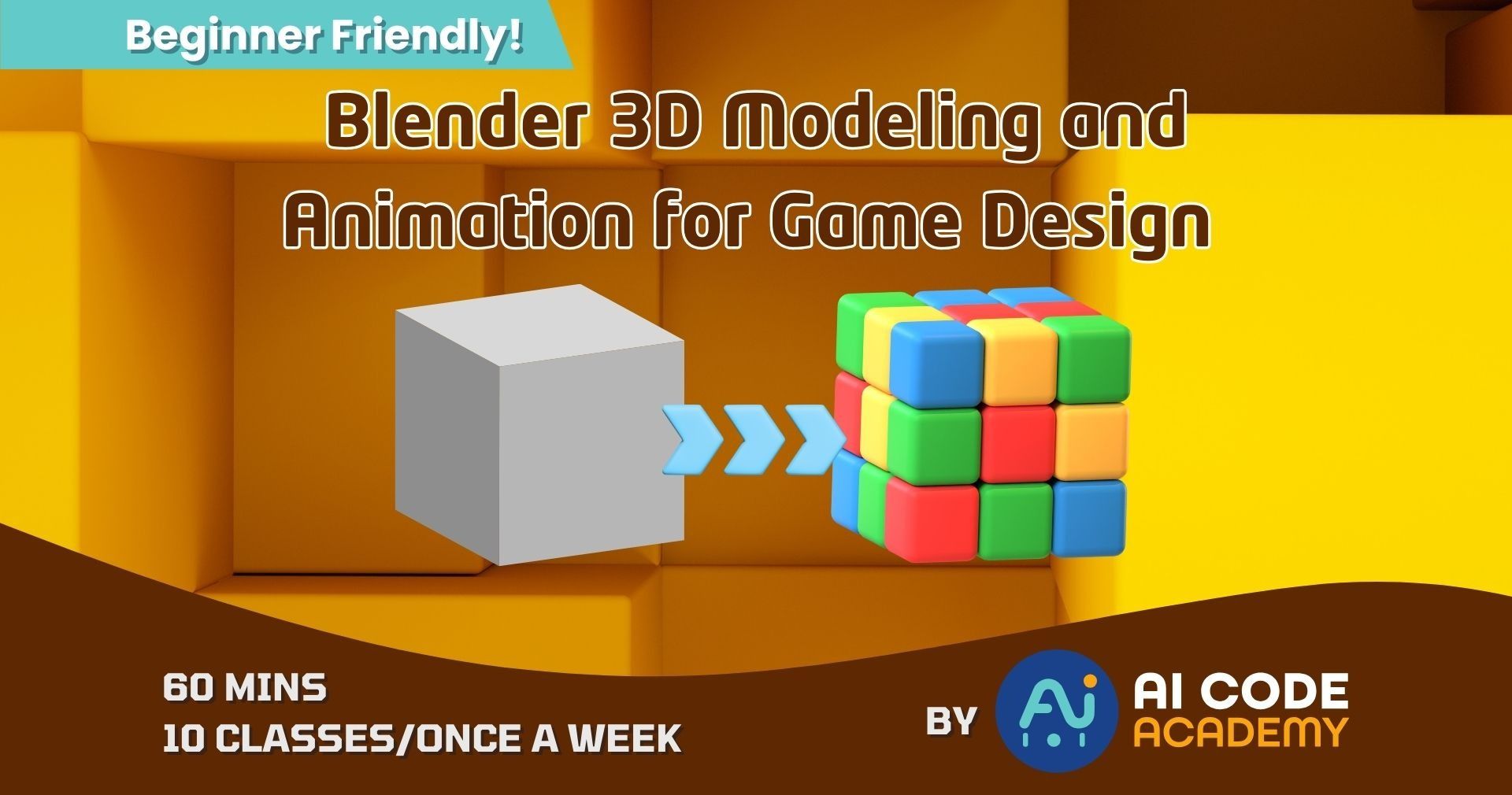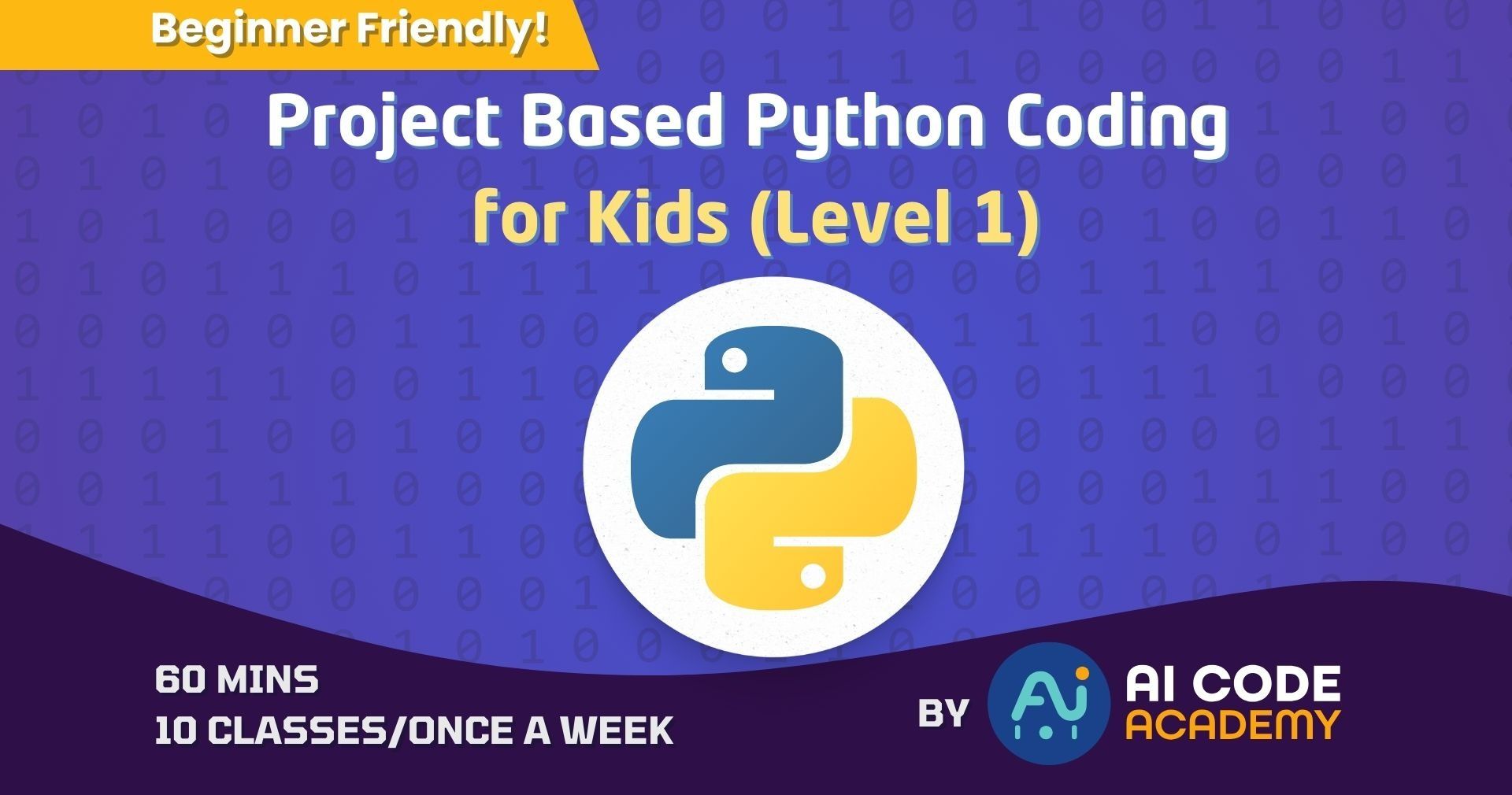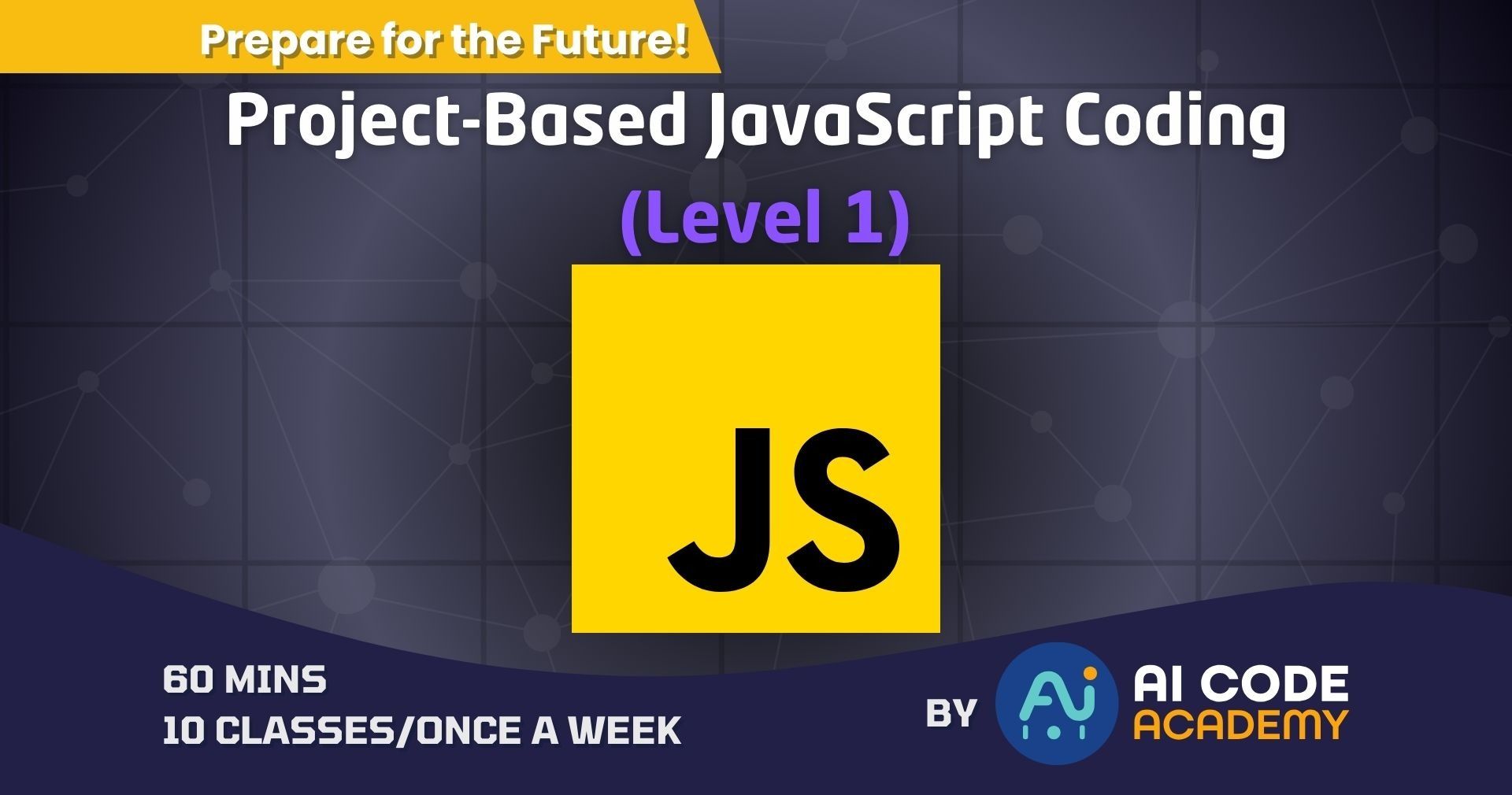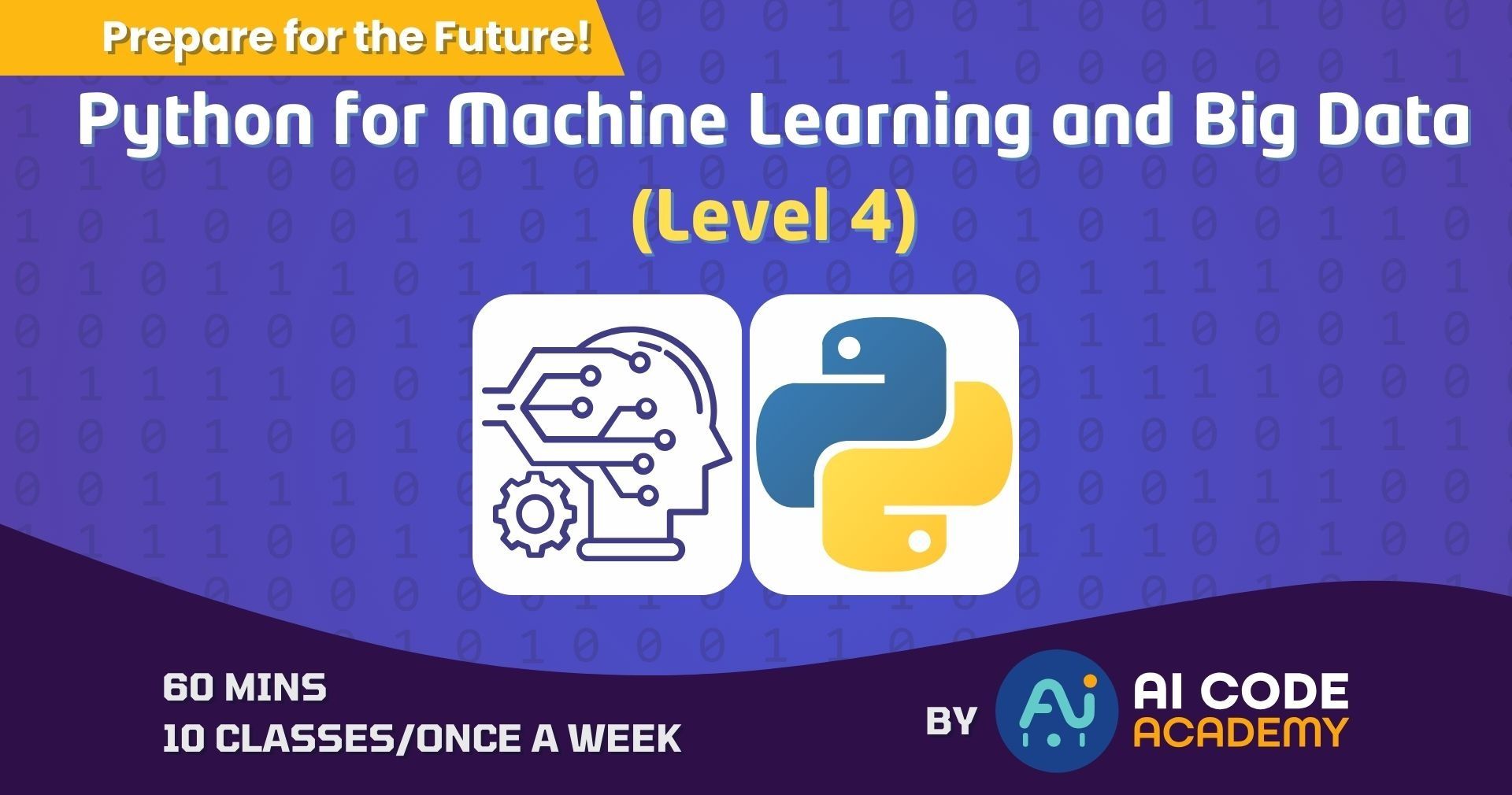First Month Free — use code BTS40. Offer valid for 80 credits plan.Learn More
44
($29.50 value)


2D and 3D Game Design With Unity (Level 1)
Ages 10-15
Live Group Class
Live video meetings
1x per week, 10 weeks
4-8 learners per class
60 min
Overview

Live Group Class
Meet over live video meetings
10 live meetings
10 in-class hours
Projects
2-4 hours per week. Projects are not mandatory but we strongly encourage students to complete them
Assessment
included
Certificate of Completion
1 after class completionClass Experience
2D and 3D Video Games in Unity for Kids In this course, we will teach foundational topics in programming video games in 3d motion, collision detection, level design, and some basic C# coding. They will also be exposed to some core mathematical concepts including how to work with two dimensional and three dimensional coordinate systems. For a week to week program, check out the syllabus.
Learning Goals

Students will teach foundational topics in programming video games in 3d motion, collision detection, level design, and some basic C# coding.
Students will also be exposed to some core mathematical concepts including how to work with two dimensional and three dimensional coordinate systems.Syllabus
10 Lessons
over 10 WeeksLesson 1:
Introduction
Students will be introduced to Unity and gain an understanding of how to interact with the editor. They will begin by creating a 2D game template, where they will learn the interface of the Engine, as well as how to use the main tools provided. 60 mins online live lesson
Lesson 2:
2D Physics Demos
Students will create two physics demos that showcase how physics functions in the Unity Engine for 2D games.
- Creating a Mass-Scale with lever, fulcrum, and multiple masses
- Trampolines and Friction 60 mins online live lesson
Lesson 3:
Physics
Students will create a 3D game where we play around with physics to roll a marble onto a balancing object in order to do a little physics experiment to get used to the Unity Engine. 60 mins online live lesson
Lesson 4:
C# Lesson
Students will learn the programming language C#. They will learn fundamental concepts which can be applied to Unity games. 60 mins online live lesson
Other Details

Pre-Requisites
no experience needed

Supply List
Technical Requirements: PC (Windows 10) or Mac (macOS 10.13) with at least a 2GHz processor and 2GB of RAM (4GB of RAM is recommended). No iPads and no Chromebooks!!! Broadband internet with at least 1.8Mbps download and 900Kbps upload speeds. Please make sure to remove your firewall if any Webcam - Either external or built-in (many laptops have an integrated camera). Microphone and Speakers - We recommend headphones with an integrated microphone
1 file available upon enrollment

External Resources
In addition to the Outschool classroom, this class uses:
Offered by
Teacher expertise and credentials
All of our coaches are college students or graduates with strong academic backgrounds in Computer Science, Physics, or other STEM-related majors. They bring a passion for teaching and real-world expertise in their fields to every class they teach.
Since 2020, we have been dedicated to delivering high-quality educational experiences on Outschool and other platforms, teaching over 14,000 students. Our instructors are experienced in working with children of various ages and skill levels, providing personalized and engaging lessons that spark curiosity and build confidence in math and coding.
Get to know our coaches here: https://tinyurl.com/5j5crx59Reviews
41 total ratings, 24 with reviews
Review summary for this class
The reviews overwhelmingly praise the instructor, Jacob, for his exceptional teaching skills, patience, and ability to explain complex subjects in a way that students can understand. Many students thoroughly enjoyed the class and learned a great deal about Unity and game development. Several parents mentioned their children's eagerness to continue learning with Jacob in the next level or part of the course. If you're interested in learning Unity and game development, this class is highly recommended.
This summary was AI-generated from parent reviews
Really helped prepare for a college intro to Unity class. Exceptionally...
Kollwitz F.on Jun 8, 2024
AI Code Academy suggests this class next...

Advanced 3D Game Design With Unity (Level 2)
AI Code Academy
4.7
(1,876)
$22 per class
Group Class
10 wks, 1/wk, 1 hr
10-14
Other classes by AI Code Academy
Other classes by AI Code Academy
Related categories
Parents also liked

Video Game Design (Live Sample Class)- Beginner
Shawn D Walk (Create2Discover)
4.9
(1,393)
$15 per class
Next session at 2 PM on Tue 10/21
Group Class
1 wk, 1/wk, 1 hr
7-10

Video Game Design (Self-Paced Course)- Part 2
Shawn D Walk (Create2Discover)
4.9
(1,393)
$9 per week
Self-Paced Class
6 weeks
7-10

Video Game Design (Self-Paced Course)- Beginner
Shawn D Walk (Create2Discover)
4.9
(1,393)
$9 per week
Self-Paced Class
6 weeks
7-10

Roblox Studio for Beginners - Video Game Design
Miss Jennifer - Roblox Scripting
4.9
(659)
$15 per class
Next session at 12 AM on Tuesday
Group Class
1/wk, 40 min
8-13

Video Game Design (Live Group Course)- Beginner
Shawn D Walk (Create2Discover)
4.9
(1,393)
$17 per class
Next session at 7:15 PM on Fri 10/24
Group Class
6 wks, 1/wk, 1 hr
7-10
Private Roblox Studio Tutoring / Roblox Scripting / Video Game Design
Miss Jennifer - Roblox Scripting
4.9
(659)
$70 per session
Next session at 3 PM today
1-on-1 Lessons
On Demand
6-18

Coding and Video Game Design for Ages 6 - 11
Usama Puri
4.4
(23)
$30 per class
Next session at 7 PM on Sunday
Group Class
1/wk, 55 min
6-11
Private Roblox Studio Tutoring / Roblox Scripting / Video Game Design - 30 Mins
Miss Jennifer - Roblox Scripting
4.9
(659)
$40 per session
Next session at 5 PM on Tue 11/4
1-on-1 Lessons
On Demand
6-18
1:1 Private Class: 3D Video Game Design Assistance W/ Atmosphir App (Ages 5+)
Raymond Mullikin (Raytoons Comics)
4.9
(524)
$45 per session
1-on-1 Lessons
On Demand
5-18

3D Video Game Designers Club With Atmosphir
Raymond Mullikin (Raytoons Comics)
4.9
(524)
$30 per class
Next session at 12 AM on Tue 11/4
Group Class
1/wk, 50 min
5-10

Internet Video Game Designers With HTML5 (Ages 13+)
Raymond Mullikin (Raytoons Comics)
4.9
(524)
$23 per class
Next session at 11 PM on Thu 11/6
Group Class
6 wks, 1/wk, 50 min
13-18

Internet Video Game Designers With HTML5 (Ages 7 To 12)
Raymond Mullikin (Raytoons Comics)
4.9
(524)
$23 per class
Next session at 4:05 PM on Thu 10/16
Group Class
6 wks, 1/wk, 50 min
7-12

Stop-Motion Video Game Designers! Code Crafty 3D Games With Clay, Toys & Crafts!
Raymond Mullikin (Raytoons Comics)
4.9
(524)
$30 per class
Next session at 10 PM on Sat 10/18
Group Class
6 wks, 1/wk, 50 min
7-12

AI Game Design Group Taster: Code Your Own Snake Video Game (Ages 13-15)
Mr. Kadeem
3.0
(1)
$16 per class
Next session at 9 PM tomorrow
Group Class
1 wk, 1/wk, 55 min
13-15
AI Game Design 1-On-1 Taster: Code Your Own Snake Video Game (Ages 13-15)
Mr. Kadeem
3.0
(1)
$32 per session
Next session at 9 PM tomorrow
1-on-1 Lessons
On Demand
13-15

🕹️ Intro to Video Game Design! Make Characters & Scenes W/ Simple Coding Intro
Raymond Mullikin (Raytoons Comics)
4.9
(524)
$23 per class
Next session at 4:05 PM on Thu 10/16
Group Class
4 wks, 1/wk, 50 min
6-11
Are you planning to use state funding, such as an Education Savings Account (ESA), Micro-grant or scholarship to help pay for your learner’s education?
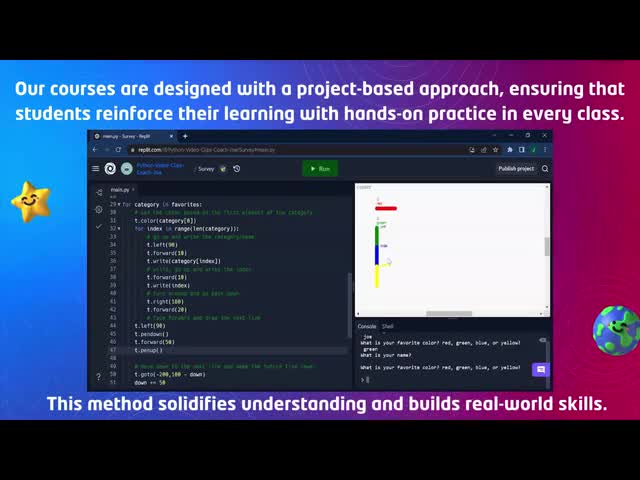
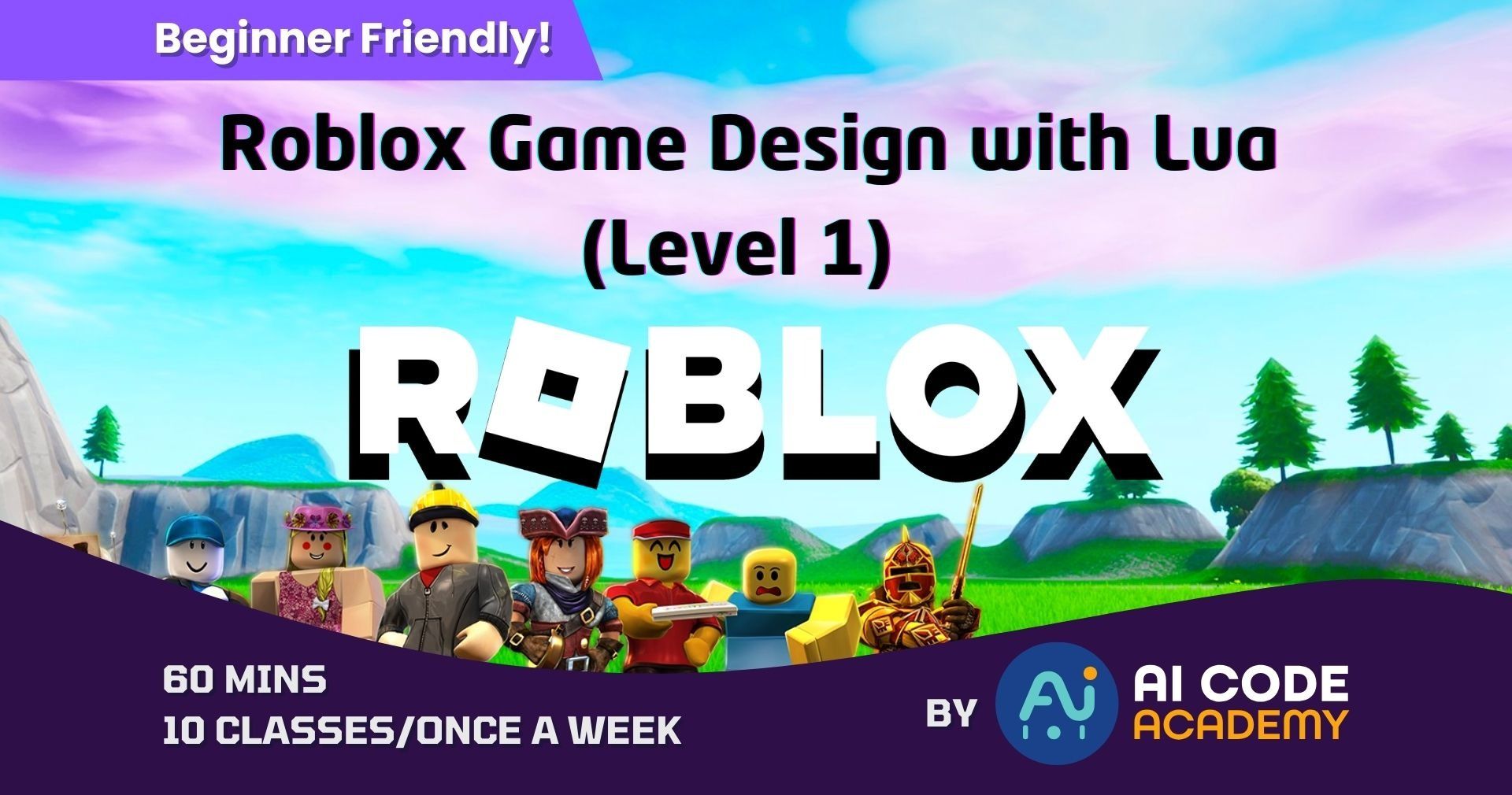
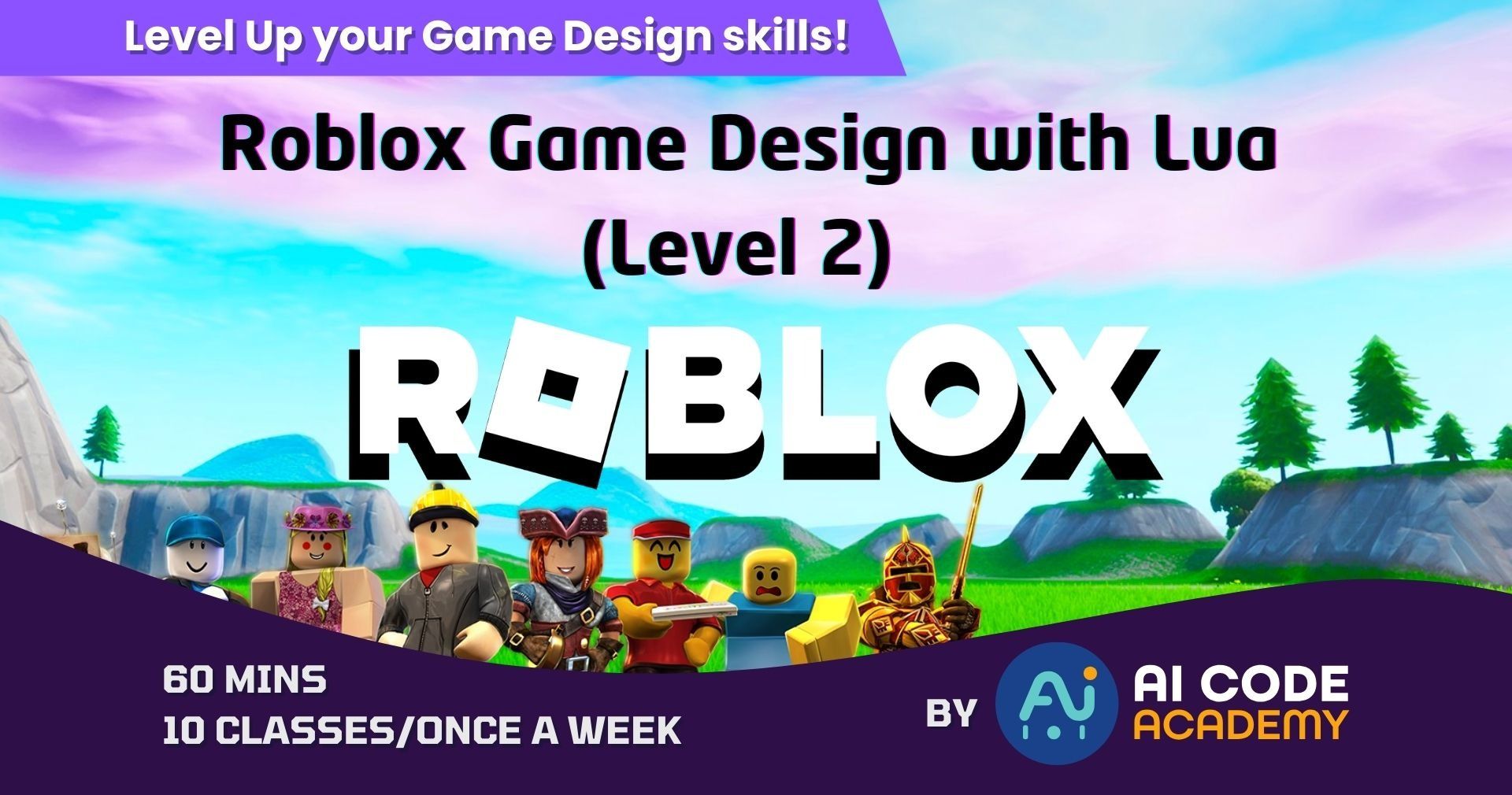
.jpg?quality=80&strip=true)
%20(3).jpg?quality=80&strip=true)
%20(1).jpg?quality=80&strip=true)
